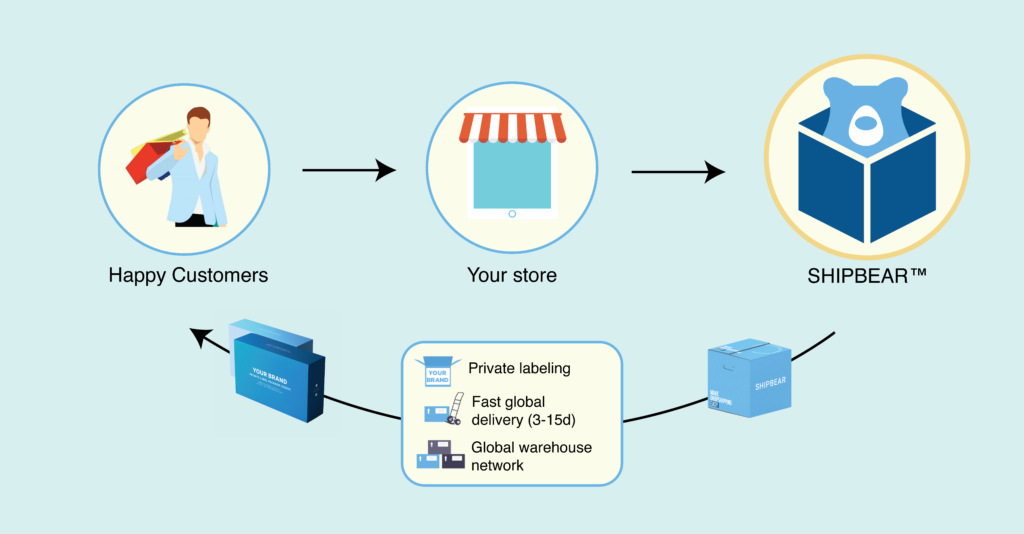From runway to wardrobe, the word ‘sustainability’ is no longer a faint whisper but a clarion call for change in the fashion industry. As the detrimental environmental effects of ‘fast fashion‘ become clearer and consumers grow increasingly eco-conscious, the future of fashion must navigate toward greener pastures. This blog post delves into the pivotal trends and innovations propelling the sustainable fashion movement into the mainstream.
The Cradle-to-Cradle Mindset
Sustainable fashion is a paradigm shift that demands the entire life cycle of clothing — the design, production, consumption, and disposal — to be reconsidered. It’s not just about the garments we wear but how they’re made, the resources they use, and their impact on the planet.
This rise of eco-consciousness is fueled by a perfect storm of factors — a deeper understanding of the environmental toll exacted by the fashion industry, a shifting societal mindset that prioritizes planet over profit, and the technology that now provides viable, sustainable alternatives.
The Current State of the Fashion Industry
The Environmental Wake-Up Call
The fashion industry stands as one of the biggest polluters globally. From vast water consumption in cotton farming to the carbon footprint of international garment transportation, the statistics are staggering. Every second, the equivalent of one garbage truck of textiles are landfilled or burned — the industry is in dire need of an overhaul.
The Sustainable Fashion Movement
Amidst this bleak landscape, a glimmer of hope emerges in the form of the sustainable fashion movement. Brands and consumers alike are recognizing the need for change and pivoting towards ethical, eco-friendly options.
Trends and Innovations in Sustainable Fashion
Embracing Eco-Friendly Materials
Innovative fabrics like Tencel, made from sustainable wood sources, or recycled polyester are gaining traction for their reduced ecological footprints. The rise of plant-based and synthetic alternatives is reshaping the industry’s raw material options.
Circular Fashion and Upcycling
Circular fashion is a regenerative approach to the design, production, and use of clothing. It involves reusing and recycling materials and products to create a closed-loop system, where waste and pollution are minimized. Upcycling — the creative process of transforming by-products, waste materials, and useless or unwanted products into new materials or products of better quality or for better environmental value — fits seamlessly into this approach.
Slow Fashion and Ethical Production
Shifting from the ‘wear once, throw away’ culture, slow fashion emphasizes quality over quantity. This leads to designs that are timeless, encouraging a more minimalist and conscious approach to consumption. The trend focuses on locally produced goods, reducing the carbon footprint associated with overseas manufacturing.
Benefits of Sustainable Fashion

Environmental Benefits
Incorporating sustainable practices in fashion production reduces the strain on natural resources, minimizes water and energy usage, and decreases pollution. The long-term result is a healed, more resilient ecosystem.
Social and Ethical Benefits
Sustainable fashion is linked to fair labor practices and the promotion of worker welfare. This translates into improved working conditions and financial security for the makers.
Economic Benefits
While there’s a misconception that eco-friendly fashion is more expensive, the longevity and quality of sustainable pieces often mean better value for money. Furthermore, the sustainable fashion sector presents new economic opportunities for businesses that embrace it.
Challenges and Opportunities in the Industry
The sustainable fashion movement is not without its obstacles. The complex, globally dispersed supply chains of the industry present significant challenges in tracing and ensuring the ethical sourcing of materials and production.
However, these challenges also present opportunities for growth and innovation. With pressure from consumers and advancements in tracking and certification technologies, brands are incentivized to adopt more transparent and sustainable practices.
How E-commerce Sellers Can Embrace Sustainable Fashion
Sustainable Sourcing and Production
E-commerce sellers can start their sustainability journey by choosing manufacturers and suppliers that utilize eco-friendly materials and ethical production methods. This includes considering factors like the distance of transportation, energy use during production, and the potential for recycling or reusing materials.
Transparent Communication with Customers
Transparency is key. E-commerce sellers should be clear and open about their sustainability efforts, sharing details about their supply chain, materials, and production processes. This establishes trust and helps to educate consumers about the choices they can make to support sustainability.
Collaborating with Sustainable Brands
Building partnerships with established sustainable brands can be a powerful strategy to enter the eco-friendly market or to strengthen an existing e-commerce business’s commitment to sustainability. By leveraging the expertise and reputation of these brands, sellers can amplify their impact and reach a wider audience.
Optimizing Eco-Friendly E-Commerce with Shipbear

As e-commerce sellers strive to align their inventories with the sustainable ethos, Shipbear emerges as a crucial ally in sourcing eco-friendly products. This advanced shipping and logistics platform caters specifically to the needs of eco-conscious sellers by streamlining the supply chain process, reducing carbon emissions and ensuring that sustainable products are delivered with minimal environmental impact.
Leveraging Data for Sustainable Sourcing
Shipbear utilizes data analytics to help sellers identify and work with suppliers who have verifiable green credentials. By assessing factors such as the suppliers’ raw material procurement, energy usage, and overall production ethics, Shipbear ensures that its clients are connected only with those who uphold the principles of sustainability in their business practices.
Facilitating Circular Supply Chains
Encouraging the adoption of circular fashion, Shipbear provides solutions to facilitate the return and recycling of products. Their platform supports the management of reverse logistics, enabling sellers to easily reclaim products at the end of their life cycle for recycling or repurposing, thereby fostering a zero-waste initiative.
Sustainable Packaging Solutions
Acknowledging the impact of packaging in e-commerce, Shipbear advises on and supplies sustainable packaging options. From biodegradable materials to innovative designs that minimize waste, their expertise ensures that product packaging aligns with an e-commerce seller’s environmental values.
By integrating Shipbear’s services, e-commerce sellers can confidently assure their customers that not only are the products they purchase sustainable, but that the entire supply chain adheres to the highest eco-friendly standards. This level of commitment is essential to make a meaningful contribution to the sustainable fashion movement, setting a new standard for the industry.
The Future of Sustainable Fashion
The future of fashion is in our collective hands, from the choices we make as consumers to the strategies brands and retailers adopt. As the sustainable fashion movement continues to gain momentum, it’s clear that an eco-conscious mindset must be woven into the very fabric of the industry.
The road ahead is paved with opportunity — for brands to differentiate themselves, for consumers to make a positive impact, and for the planet to breathe a little easier. It’s a journey that requires commitment, innovation, and a willingness to change. And as we chart a new course for fashion, one thing is certain: sustainability is not just a trend, but the future of fashion.
Remember, sustainable fashion is about more than what you wear. It’s a statement of values and a vote for the kind of world you want to live in. As a consumer, you have the power to shape the industry by supporting sustainable brands and making thoughtful choices. And as a business, embracing sustainability is not just a responsibility but a strategic imperative. The future of fashion is sustainable — let’s make sure we’re all part of it.



